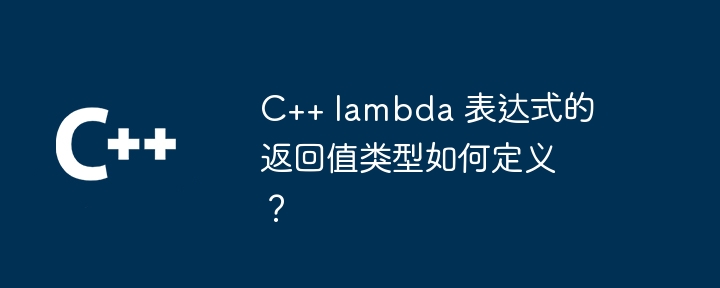Home >Backend Development >C++ >How is the return value type of a C++ lambda expression defined?
How is the return value type of a C++ lambda expression defined?
- 王林Original
- 2024-04-17 16:15:01829browse
In C, the return value type of a Lambda expression is specified through ->return-type, allowing the return value of the lambda to be clearly defined. By specifying the return value type, you can enhance the readability of your code and avoid potential errors caused by the compiler's automatic type inference.

C Return value type definition of Lambda expression
Lambda expression is a powerful anonymous function in C that allows You define inline functions in your code. The advantages of these functions are simplicity and ease of use, but sometimes you may need to specify the return type of the lambda expression.
The following is a way to define the return value type of a lambda expression:
[capture-list](parameters) -> return-type {
// lambda body
}Where:
- capture-list is a list containing the values to be captured list of variables.
- parameters is the list of parameters passed to the lambda expression.
- return-type is the return value type of the lambda expression.
Practical case:
Write a lambda expression to calculate the product of two integers:
auto multiply = [](int a, int b) -> int {
return a * b;
};
int result = multiply(5, 10); // result 为 50In the above example, The return value type of a lambda expression is specified as int. This means that the lambda expression will return an int value, and it can be called by using the lambda expression name and its arguments.
Note:
- If you do not explicitly specify the return value type, the compiler will automatically infer the type.
- The return value type of a lambda expression can be any valid C type, including references and pointers.
The above is the detailed content of How is the return value type of a C++ lambda expression defined?. For more information, please follow other related articles on the PHP Chinese website!

